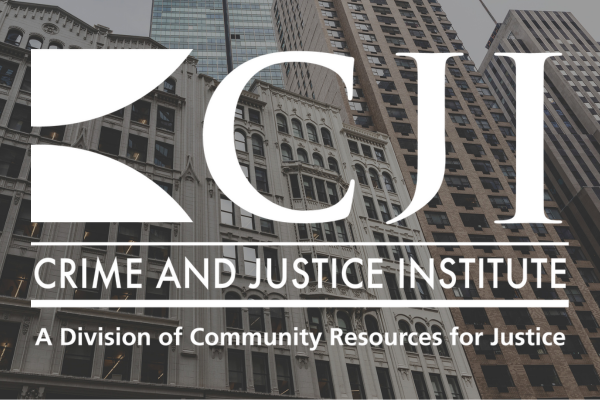
CJI to host an informational webinar on fully funded technical assistance opportunity for local youth community supervision agencies.
The Crime and Justice Institute (CJI), a division of Community Resources for Justice, through funding from the Office of Juvenile Justice and Delinquency Prevention (OJJDP), is available to provide intensive training and technical assistance (TTA) to competitively selected local jurisdictions to meet the goals of the Second Chance Act. The overarching goals for this program are to improve community supervision practices, produce better outcomes for youth and communities, reduce recidivism, and improve public safety.
Join CJI on August 16, 2023, at 3:00 p.m. (EST) to learn more about this opportunity. The informational webinar will provide an overview of the Improving Community Supervision National Training and Technical Assistance Program, review the application requirements and eligibility, discuss the types of technical assistance and implementation support that will be available, and answer participant questions.
If your community supervision agency is interested in any of the following supports, we encourage you to register for the webinar:
- Improving outcomes for youth under community supervision through the implementation of evidence-based and innovative community supervision policies, practices, and programs
- Building capacity to implement meaningful change through staff training and improvement of staff-client interactions
- Reducing admissions to confinement resulting from community supervision/probation violations
- Collaborating with probation, courts, law enforcement, parole, and community providers to reduce recidivism and promote public safety
- Sharing your outcomes, lessons learned, and reforms with the field to inspire and inform other jurisdictions
For more information about the program or to apply for TTA, click this link.
Questions about TTA requests should be directed to Jasmine Jackson, CJI’s Youth Justice Manager, at jjackson@cjinstitute.org or 857-208-1410.
This project was supported by Grant 15PJDP-22-GK-03263-SCAX awarded by the Office of Juvenile Justice and Delinquency Prevention, Office of Justice Programs, U.S. Department of Justice. The opinions, findings, and conclusions or recommendations expressed in this publication are those of the author(s) and do not necessarily reflect those of the Department of Justice.